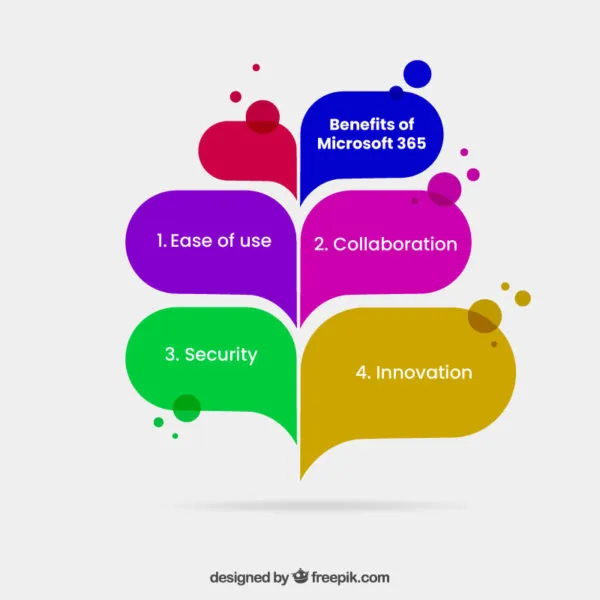Authored by: Joe Deally
Head of Cloud Services
The Not-for-Profit sector plays a vital role in addressing social and environmental challenges, providing essential services, and promoting community engagement. However, the sector also faces many challenges, such as limited resources, increased demand, and complex regulations. In addition, the sector is increasingly exposed to cyber threats, as data breaches and ransomware attacks can compromise the privacy and trust of donors, beneficiaries, and partners.
To overcome these challenges and achieve secure productivity, Not-for-Profit organisations need to adopt smart and innovative solutions that can help them streamline their operations, protect their data, and enhance their impact. In this blog, we will explore some of the benefits and best practices of using Microsoft 365, a cloud-based suite of productivity and collaboration tools, to achieve secure productivity in the Not-for-Profit sector.
Benefits of Microsoft 365
Microsoft 365 offers a range of benefits for the Not-for-Profit sector, such as:
- Ease of use: allows organisations to access and use familiar apps such as Word, Excel, PowerPoint, Outlook, and Teams from any device and location, without the need for complex installation or maintenance. This can help reduce IT costs and increase efficiency and flexibility.
- Collaboration: enables organisations to communicate and collaborate with their staff, volunteers, donors, and partners in real time, using chat, video conferencing, file sharing, and co-authoring features. This can help improve teamwork, coordination, and transparency.
- Security: provides advanced security features, such as encryption, multi-factor authentication, data loss prevention, and threat protection, to safeguard organisational data and devices from unauthorised access and cyberattacks. Microsoft 365 also complies with various data protection regulations, such as the General Data Protection Regulation (GDPR), to ensure the privacy and security of personal data.
- Innovation: empowers organisations to leverage artificial intelligence and cloud computing to automate tasks, generate insights, and create high-quality content. For example, Microsoft 365 Copilot is a new feature that uses artificial intelligence to help Not-for-Profit organisations with various tasks and projects, such as creating summaries, action items, and follow-ups for meetings, generating original content and ideas, and providing feedback and suggestions.

Best Practices for Using Microsoft 365 for Secure Productivity
To make the most of Microsoft 365 for secure productivity, there are a number of best practices that can be followed, such as:
- Assess your needs and goals: Before adopting Microsoft 365, organisations should assess their current and future needs and goals, such as the size and scope of their operations, the types and volumes of data they handle, the level of collaboration and communication they require, and the security and compliance standards they need to meet. This can help them choose the right Microsoft 365 plan and features for their organisation.
- Train your staff and volunteers: To ensure the effective and secure use of Microsoft 365, Not-for-Profit organisations should provide adequate training and support to their staff and volunteers, especially those who are new to or unfamiliar with the cloud-based tools. This can help them learn how to use the features and functions of Microsoft 365, how to protect their data and devices, and how to troubleshoot any issues or problems.
- Monitor and update your system: To maintain the performance and security of Microsoft 365, organisations should regularly monitor and update their system, such as checking for updates, patches, and alerts, reviewing the usage and activity reports, and adjusting the settings and preferences. This can help them optimise their system, detect and prevent any potential threats or risks, and ensure the compliance and reliability of their system.
Conclusion
Microsoft 365 is a powerful and versatile solution that can help Not-for-Profit organisations achieve secure productivity in the digital age. By using Microsoft 365, organisations can benefit from the ease of use, collaboration, security, and innovation that the cloud-based tools offer, while following the best practices to ensure the effective and secure use of the system. By doing so, Not-for-Profit organisations can enhance their efficiency, impact, and resilience, and ultimately, advance their mission and vision. To discuss your requirements for Microsoft 365, don’t hesitate to contact our team of experts today.
